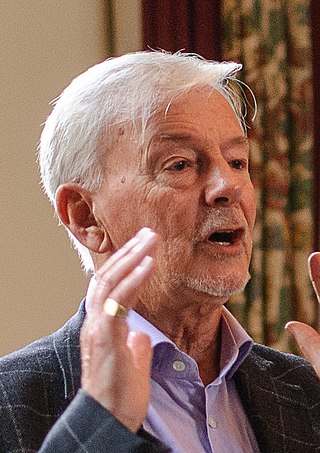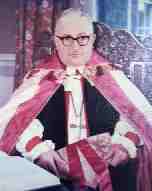Related Research Articles
Philosophy of religion is "the philosophical examination of the central themes and concepts involved in religious traditions". Philosophical discussions on such topics date from ancient times, and appear in the earliest known texts concerning philosophy. The field is related to many other branches of philosophy, including metaphysics, epistemology, and ethics.
Scientism is the opinion that science and the scientific method are the best or only way to render truth about the world and reality.
In environmental philosophy, environmental ethics is an established field of practical philosophy "which reconstructs the essential types of argumentation that can be made for protecting natural entities and the sustainable use of natural resources." The main competing paradigms are anthropocentrism, physiocentrism, and theocentrism. Environmental ethics exerts influence on a large range of disciplines including environmental law, environmental sociology, ecotheology, ecological economics, ecology and environmental geography.

Christian philosophy includes all philosophy carried out by Christians, or in relation to the religion of Christianity. Christian philosophy emerged with the aim of reconciling science and faith, starting from natural rational explanations with the help of Christian revelation. Several thinkers such as Augustine believed that there was a harmonious relationship between science and faith, others such as Tertullian claimed that there was contradiction and others tried to differentiate them.

Mary Beatrice Midgley was a British philosopher. A senior lecturer in philosophy at Newcastle University, she was known for her work on science, ethics and animal rights. She wrote her first book, Beast and Man (1978), when she was in her late fifties, and went on to write over 15 more, including Animals and Why They Matter (1983), Wickedness (1984), The Ethical Primate (1994), Evolution as a Religion (1985), and Science as Salvation (1992). She was awarded honorary doctorates by Durham and Newcastle universities. Her autobiography, The Owl of Minerva, was published in 2005.

Theistic science, also referred to as theistic realism, is the pseudoscientific proposal that the central scientific method of requiring testability, known as methodological naturalism, should be replaced by a philosophy of science that allows occasional supernatural explanations which are inherently untestable. Proponents propose supernatural explanations for topics raised by their theology, in particular evolution.

John Boswell Cobb, Jr. is an American theologian, philosopher, and environmentalist. Cobb is often regarded as the preeminent scholar in the field of process philosophy and process theology, the school of thought associated with the philosophy of Alfred North Whitehead. Cobb is the author of more than fifty books. In 2014, Cobb was elected to the prestigious American Academy of Arts and Sciences.
Ian Graeme Barbour was an American scholar on the relationship between science and religion. According to the Public Broadcasting Service his mid-1960s Issues in Science and Religion "has been credited with literally creating the contemporary field of science and religion."
Philosophy is the study of general and fundamental problems concerning matters such as existence, knowledge, values, reason, mind, and language. It is distinguished from other ways of addressing fundamental questions by its critical, generally systematic and its reliance on rational argument. It involves logical analysis of language and clarification of the meaning of words and concepts.
Secular ethics is a branch of moral philosophy in which ethics is based solely on human faculties such as logic, empathy, reason or moral intuition, and not derived from belief in supernatural revelation or guidance—the source of ethics in many religions. Secular ethics refers to any ethical system that does not draw on the supernatural, and includes humanism, secularism and freethinking. A classical example of literature on secular ethics is the Kural text, authored by the ancient Tamil Indian philosopher Valluvar.
Don Cupitt is an English philosopher of religion and scholar of Christian theology. He has been an Anglican priest and a lecturer in the University of Cambridge, though is better known as a popular writer, broadcaster and commentator. He has been described as a "radical theologian", noted for his ideas about "non-realist" philosophy of religion.

Keith Ward is an English philosopher, and theologian. He is a fellow of the British Academy and a priest of the Church of England. He was a canon of Christ Church, Oxford, until 2003. Comparative theology and the relationship between science and religion are two of his main topics of interest.
Kevin Jon Vanhoozer is an American theologian and current Research Professor of Systematic Theology at Trinity Evangelical Divinity School (TEDS) in Deerfield, Illinois. Much of Vanhoozer's work focuses on systematic theology, hermeneutics, and postmodernism.
Robin Attfield, MA (Oxon), PhD (Wales) is a Professor of Philosophy at Cardiff University since 1992.

Ian Thomas Ramsey was a British Anglican bishop and academic. He was Professor of the Philosophy of Religion at the University of Oxford, and Bishop of Durham from 1966 until his death in 1972. He wrote extensively on the problem of religious language, Christian ethics, the relationship between science and religion, and Christian apologetics. As a result, he became convinced that a permanent centre was needed for enquiry into these inter-disciplinary areas; and in 1985 the Ian Ramsey Centre for Science and Religion at the University of Oxford was set up to promote discussion on the problems raised for theology and ethics by developments in science, technology and medicine.
A Scientific Theology is a set of three books by Alister McGrath that explores the parallels between the working assumptions and methods of Christian theology and those of the natural sciences. Scientific Theology is also the "running title" of the project which gave rise to the trilogy. The work is preceded by three volumes that McGrath describes as "landmarks" in the development of his scientific theology: The Genesis of Doctrine: A Study in the Foundations of Doctrinal Criticism, The Foundations of Dialogue in Science and Religion and Thomas F. Torrance: An Intellectual Biography. The trilogy was later summarised in The Science of God. McGrath is working on a "scientific dogmatics" which will deal with the content of Christian theology following the method developed in the trilogy.

Philosophy is the systematized study of general and fundamental questions, such as those about existence, reason, knowledge, values, mind, and language. Such questions are often posed as problems to be studied or resolved. Some sources claim the term was coined by Pythagoras, although this theory is disputed by some. Philosophical methods include questioning, critical discussion, rational argument, and systematic presentation.
Vincent Brümmer was a South African-born Christian theologian who worked for most of his career in the Netherlands. From 1967 to 1997 he was the Professor of Philosophy of Religion at the University of Utrecht.

The Blackwell Companion to Science and Christianity is a reference work in science and religion, edited by J.B. Stump and Alan G. Padgett, and published by Wiley-Blackwell in 2012. It contains 54 new essays written by an international list of 55 authors, many of them leading scholars in the discipline of science and religion, and others new or up-and-coming voices in the field. The editors claim, "We are seeking to introduce and advance serious thinking and talking about science and Christianity, particularly as they interconnect. We are reflecting on the work of scientists and theologians, trying to find points of contact and points of tension which help to illuminate these practices and doctrines in clear, scholarly light." The book has received positive reviews in Choice, Reference Reviews, Themelios and Perspectives on Science and Christian Faith. The article by Sean M. Carroll generated significant attention when it was discussed on the Huffington Post.
A non-science is an area of study that is not scientific, especially one that is not a natural science or a social science that is an object of scientific inquiry. In this model, history, art, and religion are all examples of non-sciences.